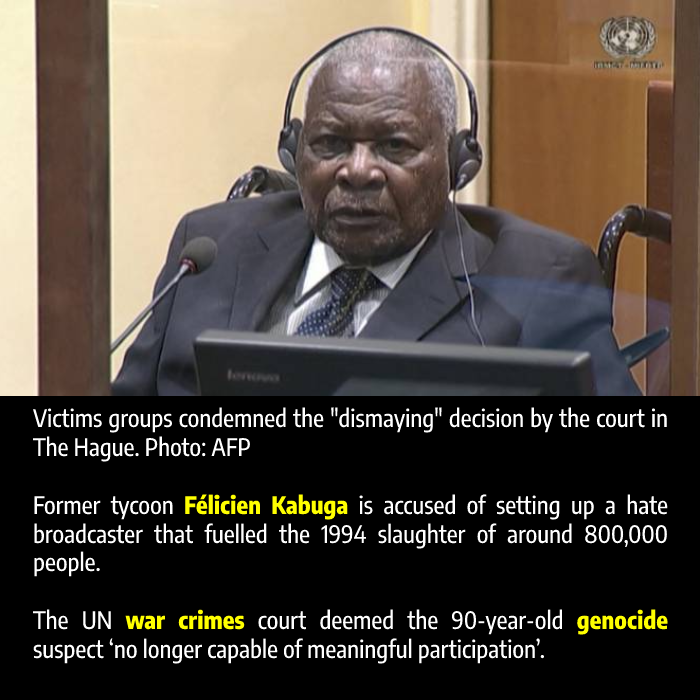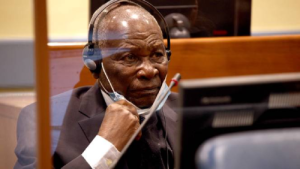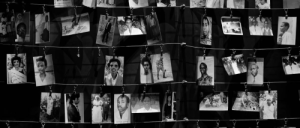
UN war crimes judges have ruled that Rwanda’s ageing suspect Felicien Kabuga, who was accused of genocide against the Tutsis, was unfit to stand trial but should still undergo a stripped-down legal process.
The International Residual Mechanism for Criminal Tribunals said in an order on Wednesday that “Kabuga is unfit to participate meaningfully in his trial and is very unlikely to regain fitness in the future.”
But the judge said scrapping the trial altogether was “inappropriate”.
They instead proposed an “alternative finding procedure that resembles a trial as closely as possible, but without the possibility of a conviction.”
The court added that Kabuga would not be required to attend the new legal process.
It was essential to victims, survivors and the international community that the genocide crimes against Kabuga still be addressed in court, the justices added. One judge dissented.
Victims groups condemned the “dismaying” decision by the court in The Hague.
Former tycoon Kabuga, who is 88 according to officials but claims to be 90, is accused of setting up a hate broadcaster that fuelled the 1994 slaughter of around 800,000 people.
Captured in Paris 2020 after two decades on the run, wheelchair-bound Kabuga went on trial last September but judges said medical experts had now found that he has “severe dementia”.

Once one of Rwanda’s richest men, prosecutors say Felicien Kabuga helped set up hate media that urged ethnic Hutus to kill Tutsis along with funding militia groups in 1994.
READ: Rwanda genocide ‘financier’ Felicien Kabuga’s trial to open in The Hague
‘Genocide mastermind’
Prosecutors accuse Kabuga, once one of Rwanda’s richest men, of being the driving force behind Radio-Television Libre des Mille Collines (RTLM), which urged ethnic Hutus to kill Tutsis with machetes. Kabuga has pleaded not guilty.
The court first put the trial on hold in March over health concerns, having earlier dismissed bids by Kabuga’s defence lawyers to have him declared unfit to stand trial.
Survivors of the genocide accused Kabuga’s family and lawyers of using “delaying tactics”.
“When Kabuga was arrested after evading justice for more than two decades, we were happy and thought that justice was finally going to be served,” said Naphtali Ahishakiye, executive secretary of Ibuka, the genocide survivors group.
“The UN has now made a wrong, dismaying and disappointing ruling,” Ahishakiye said in Kigali.
“Nothing is more hurtful than seeing this man, a genocide mastermind and financier, die without facing justice.”
Kabuga is one of the last genocide suspects to face justice, with 62 convicted by the tribunal so far.
Another suspect, Fulgence Kayishema, appeared before a court in the South African city of Cape Town in May after being arrested following 22 years on the run.

Remembering genocides and mass atrocities matters for survivors, for victims and it concerns us all.
READ: Why remembering the 1994 Genocide Against the Tutsi in Rwanda matters
Source: TRT World. 8 June 2023